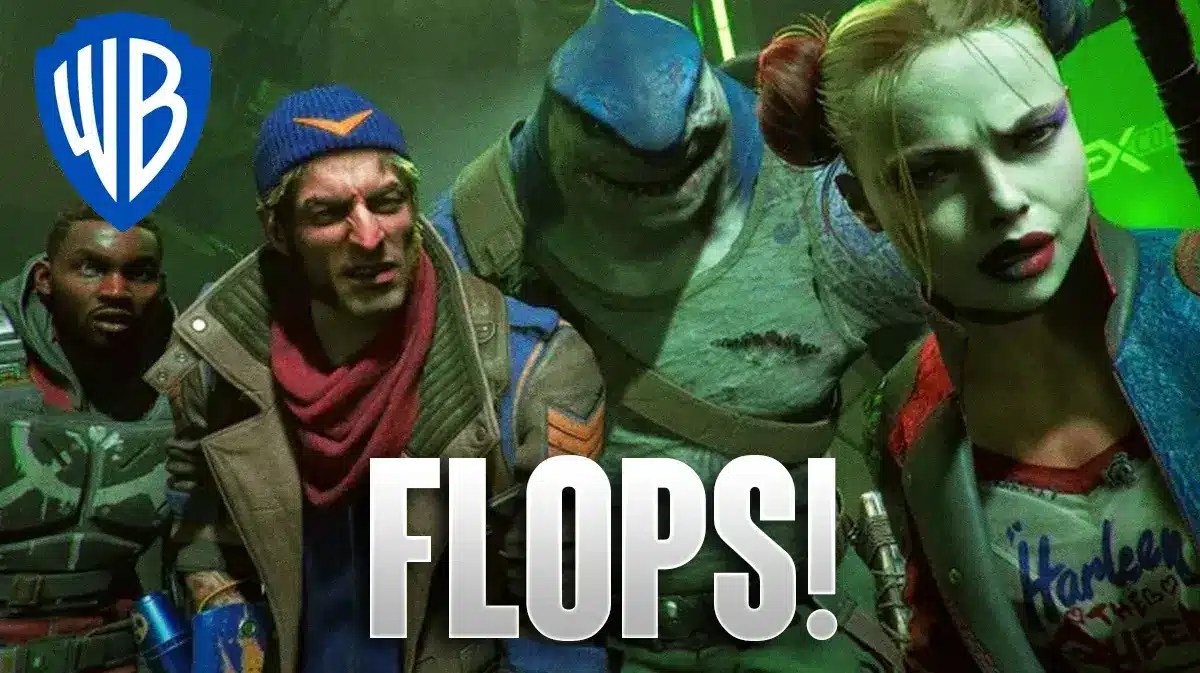Warner Bros. Discovery has publicly shared its dissatisfaction with the commercial performance of its latest video game release, Suicide Squad: Kill the Justice League, pointing out a concerning start that could signify troubled waters ahead for the title. The game's underwhelming launch was spotlighted in the entertainment conglomerate's latest financial disclosures, underscoring a period of introspection for Warner Bros. as it grapples with the game's future.
High Hopes, Mixed Reviews: Suicide Squad's Rocky Start
Released on February 2 across PC and current-generation gaming consoles, Suicide Squad: Kill the Justice League embarked on its market journey with high expectations. However, the game's reception has been lukewarm at best, securing an average score of 60 out of 100 from 107 reviews on OpenCritic, a critical aggregator. This mixed critical consensus contrasts with the somewhat more favorable reviews from players, though this did not translate into strong sales figures.
In the weeks following its debut, the game struggled to maintain a substantial player base, a predicament highlighted by the surprising revelation that an older Batman title by the same developer, Rocksteady Studios, outperformed Suicide Squad in Steam player counts. This shift in player attention underscored the game's failure to captivate and retain an audience, casting a shadow over its launch.
Warner Bros says that ‘SUICIDE SQUAD KILL THE JUSTICE LEAGUE’ "has fallen short of our expectations" pic.twitter.com/WRfsbQ4S3Z
— DiscussingFilm (@DiscussingFilm) February 23, 2024
During the earnings call for the fourth quarter of the fiscal year 2023, Warner Bros. Discovery's CFO, Gunnar Wiedenfels, candidly remarked on the game's performance. “This year, Suicide Squad, one of our key video game releases in 2024, has fallen short of our expectations since its release earlier in the quarter, setting our games business up for a tough year-over-year comp in Q1,” he stated. This acknowledgment marks a significant moment of reflection for Warner Bros., especially when juxtaposed against the backdrop of last year's success story, Hogwarts Legacy, which set a high bar for the company's entertainment portfolio.
Declining Player Count And Uncertain Future: The Challenges Facing Suicide Squad
Wiedenfels stopped short of providing detailed sales figures but noted a concerning trend in the game's Steam player count. From a peak of approximately 13,500 players at launch, numbers dwindled to fewer than 900 by February 23, a stark decline that signals waning interest among the gaming community.
Suicide Squad: Kill the Justice League's Steam player count has dipped by 85 percent in two weeks (below 1,000 players) 📉 pic.twitter.com/V8DsrVn6Cb
— CheapDigitalDownload (@CheapDigitalD) February 19, 2024
The game's future, as outlined by Rocksteady, currently extends to a content roadmap through 2024, encompassing four seasons of updates and additions. This plan, while indicative of the developer's commitment to the title, leaves unanswered questions regarding the game's long-term viability beyond the stated period. The absence of a clear promise for extended support post-2024 amplifies these concerns, painting an uncertain future for Suicide Squad: Kill the Justice League.
Beyond Genre: Navigating Suicide Squad's Complex Recovery Path
Speculation within the DC fandom and broader gaming circles suggests that the game's struggles might be attributed to an oversaturated live-service shooter market. However, attributing the game's lackluster launch to its genre or business model alone oversimplifies the issue. The reality likely encompasses a range of factors, including market dynamics, competition, and the game's execution of the Suicide Squad IP.
As Warner Bros. Discovery navigates the aftermath of this setback, its approach and strategic decisions moving forward will play a critical role in determining the future of Suicide Squad: Kill the Justice League. The company's handling of the situation not only impacts the game's trajectory but also serves as a potential model for managing underperforming titles within the entertainment industry's unpredictable video game sector. Warner Bros.' actions in the coming months will be pivotal in reaffirming its stance and adaptability in a market that demands both innovation and resilience.
The coming months will be crucial for Suicide Squad: Kill the Justice League. With Rocksteady's planned content updates, there is potential for the game to recapture some of its lost momentum. However, whether these efforts can significantly reverse the game's fortunes remains to be seen. For Warner Bros. Discovery, the challenge is not just about reviving a single title but also about reaffirming its position in a competitive entertainment landscape that leaves little room for error.
For more gaming news, visit ClutchPoints Gaming




















